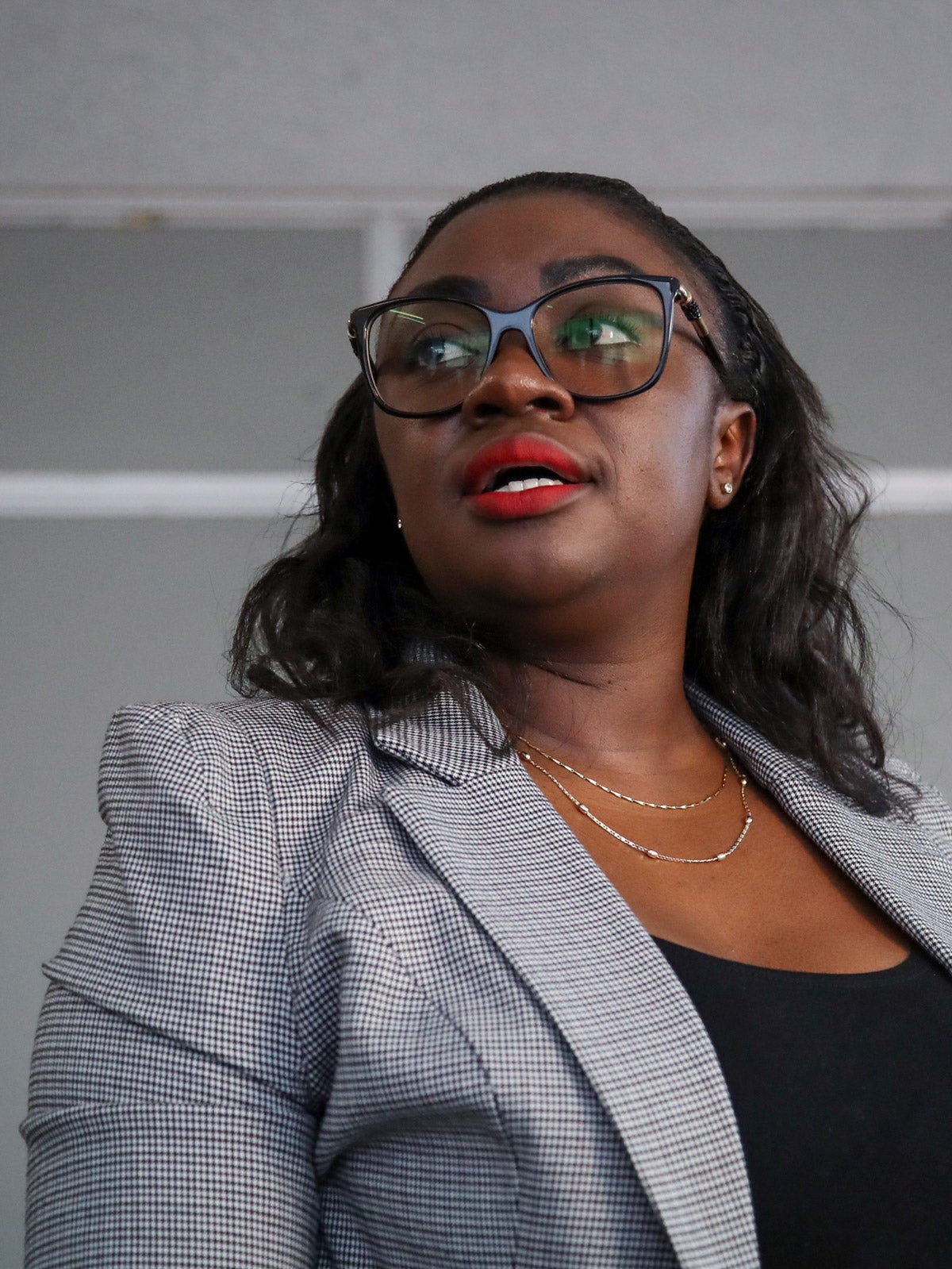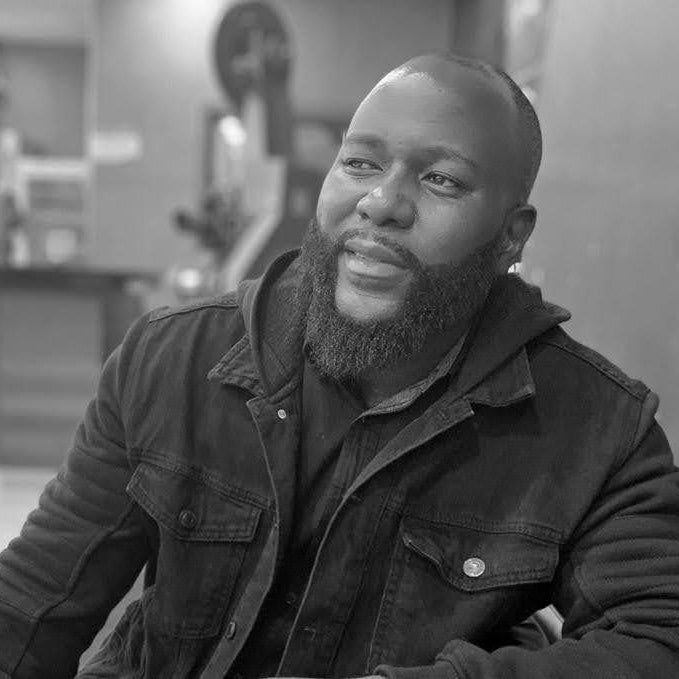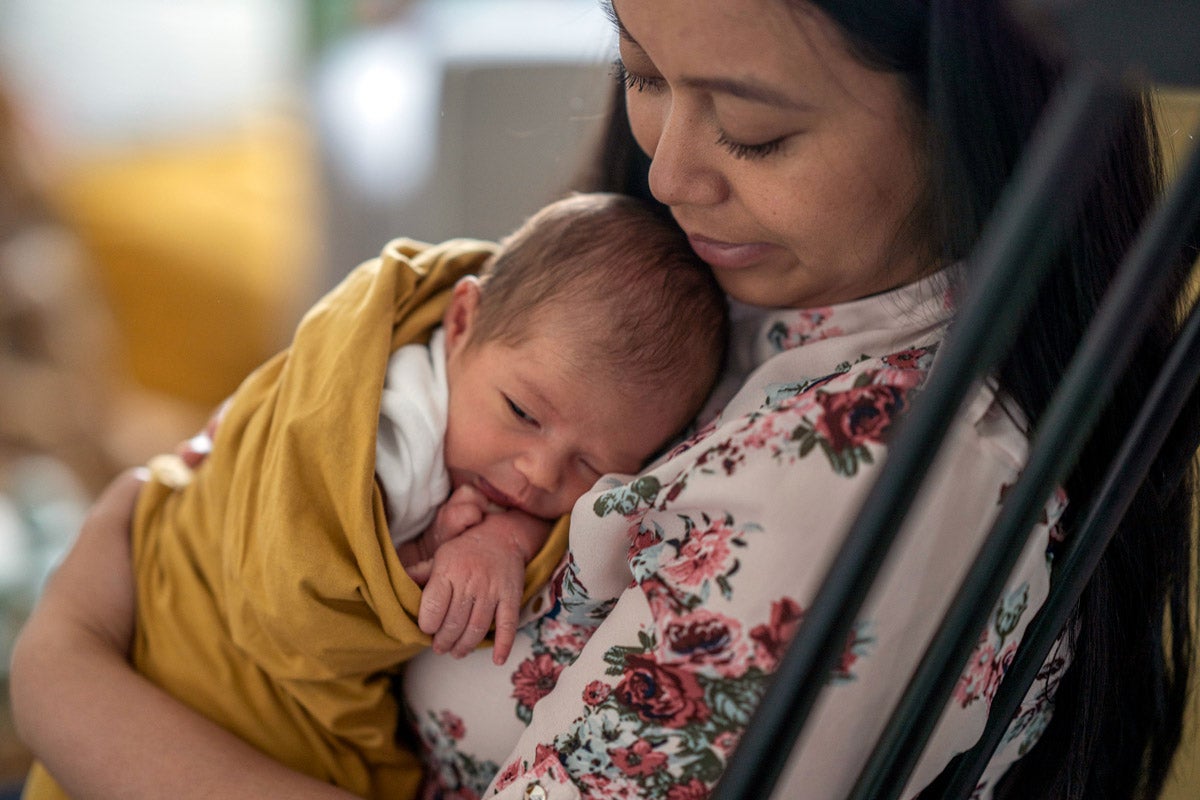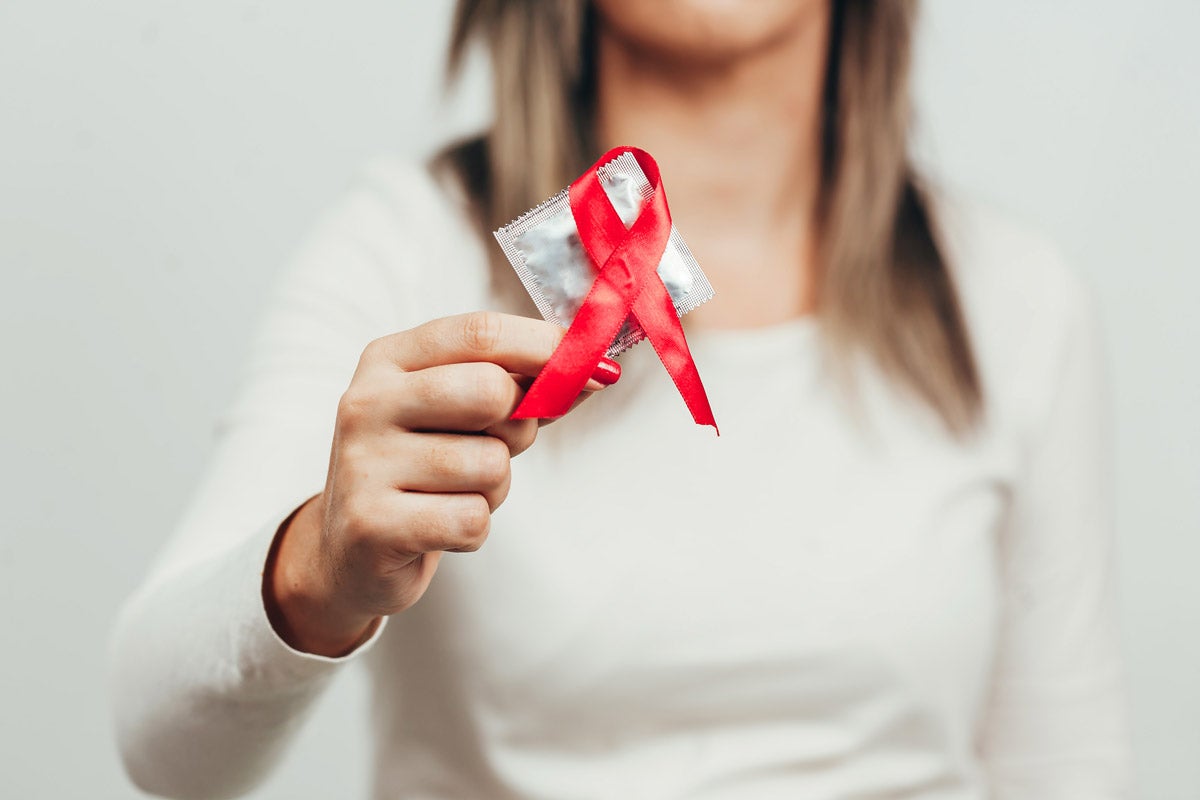
Kenyan senator Gloria Orwoba speaks to the Associated Press at her office in Nairobi in February 2023, after attending a session of parliament while wearing a white pantsuit stained by her menstruation in order to combat the stigma surrounding women's monthly periods. Brian Inganga / AP Photo
People
Battling period poverty in Kenya
A year-and-a-half ago, Gloria Orwoba, a senator in Kenya’s Parliament, caused a media frenzy when she walked into legislative building while wearing an all-white suit stained with menstrual blood.
That day, she says, she only noticed the stain as she arrived at the senate. She went inside the chamber anyway to draw attention to her cause: The lack of menstrual pads coupled with period shame is a reality faced by millions of girls and women in Kenya. But the first-term senator was ruled out of order by fellow legislators and castigated for violating the chamber’s dress code.
Even before this, Orwoba had been fighting against stigma—and “period poverty” more generally—through public service. In particular, she’d negotiated with government leaders to reduce corporate taxes that drive up the cost of sanitary pads. It’s one of the causes that paved her way to senate, where she holds one of the seats reserved for women’s affairs. Gender is the lens she brings to most of the bills she sponsors, and she works with peers in Uganda and Ghana on menstrual hygiene issues.
Orwoba sat down with Harvard Public Health contributor Lenny Rashid Ruvaga in Nairobi, Kenya to discuss three of her big ideas about periods. This interview has been condensed and edited.
Harvard Public Health: Recently, Parliament passed the Sanitary Towels Provision Bill you sponsored, ensuring an impressive funding increase for menstrual pads in public institutions, including schools and prisons. After a threat from the legislature to halve the budget for pads, you managed to get Parliament to double it, to 940 million Kenyan shillings (about $7.3 million). How did you do it?
Orwoba: You know, at the beginning of my advocacy, I was not so familiar with dealing with opposition. It really used to bring me down. For me, the most difficult moment was that the people that you are fighting for [sometimes say] that it’s not really an important [issue]: “Why are we talking about this?”
Now this is the beauty of moving from the civil society space into the public service space and into politics. From the civil society space, you are limited to public participation, demonstrations. You are outside. As a politician, you’re suddenly sitting in State House with the president, saying, “Mr. President, we are bleeding too much, and [the current budget] is not gonna cut it. We need one billion.” And, you know, those conversations for me are the highlight: This is what you can do with this position, as a woman in power. And I was so excited when those conversations behind the scenes materialized into [effectively] tripling the national budget allocation for pads. And now we have more girls receiving the free sanitary towels in schools.
Sign up for Harvard Public Health
Delivered to your inbox weekly.
HPH: You were an activist before you were a politician, and movement activism is often about working together. In your experience, do women parliamentarians also work together in the fight for more sexual reproductive health rights? Even across party lines?
Orwoba: I hate to be the person that says it. Women parliamentarians work towards the fight of representation, but they don’t work together. Most of my critics, of the people who have not really been supportive, have been women. I don’t know if it is inbuilt, but I would say as women parliamentarians of Kenya, we work towards representation of more women, but we don’t necessarily work together on it. That is the truth.
But why are women always being pushed to work together? Men are never being pushed to work together. Why should we always be united? As long as we are all working towards a common goal in our spaces, I don’t think the agenda should be uniting women for women. I think the agenda should be ensuring that every woman in a space of power and influence should be able to fight for more women.
HPH: What about male legislators?
Orwoba: Actually, male legislators have been more supportive towards the [sanitary towels] bill. For female legislators, it always feels like we are competing amongst each other. So it becomes a bit difficult to collaborate because it’s more about who is pushing the bill in terms of the mileage they get. Most of my partnerships are with the male legislators [for whom I] make it feel less awkward to …. just start talking about menstruation.
HPH: Last year, independent of your work as a parliamentarian, you launched something called “The Glo Pad Bank.” Tell us what that is.
Orwoba: After the stain incident, and all of the negative backlash and online bullying, I was, having a conversation with my sister and a couple of friends. And they said, you know what? I liked that you went and distributed pads. But, you know, you need to scale this up. You need to get a lot of people to bring you pads. And because we don’t want any kind of scandal related to money that is being sent to you.
HPH: Meaning, money is not always a useful tool in a country where corruption is high and rumors abound, right?
Orwoba: Exactly. So my friends said, how about we just, you know, station a 20-foot container somewhere, and people can just drop the pads? Simple. The next thing you know, one of the one of my friends said, I’m going to buy the container. There was no there was no working group. There was no think tank. It was really like, we don’t wanna deal with money. We want people to bring pads.
HPH: You want to launch Africa’s first menstruation museum. Can you share more about that?
Orwoba: You know, we take our kids to school. When they’re in school, they are going all the time to our museums. It doesn’t matter which country you come from; there is always a subject that will take kids in primary school, in high school, in universities to a museum, so that they can learn about history, or scientific things. You know, in Kenya, we are the cradle of mankind.
We show that in our museums. And I’m like—show where we came from, yes. And we all came from periods.
Back in the day, in Africa, there are many places where we had the period huts, where it was like a sacred place that you would be told to sleep and stay in because this is such a sacred time in your life. It’s like learning about how the world came about.
And over the years, we have had, such development in that space, you know? Like, who thought about a tampon? Why did they think about it? What informed that decision? All of that needs to be documented, displayed, for people to learn, understand, and appreciate So that by the time we are literally phasing off this stigma and this shame, it is not only because we have made loud campaigns over billboards about how you should be proud of your periods, but it’s also on the basis of the understanding of what the sanctity of menstruation is. And for me, that can only be done by educating our children from a very young age.



